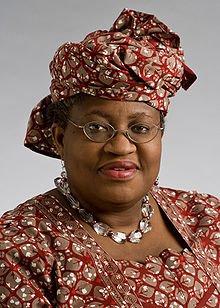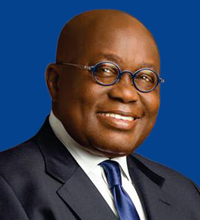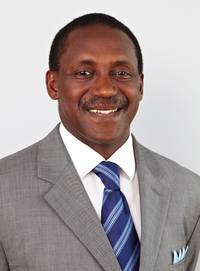Panel Discussion: "Democratisation in Africa, Challenges and Opportunities"
Dr. Fomunyoh has just ended another successful tour across the United Kingdom, where he gave talks to three different audiences.During the tour that kicked of at the School of Oriental and African Studies (SOAS); University of London, Dr. Fomunyoh gave an academic talk to a mixed audience of Staff members and students from SOAS and the London School of Economics, as well as other Africanists and Policy experts from across the UK.
His participation at the panel discussion as a panellist and guest speaker follows an old SOAS tradition of hosting senior and distinguished policy experts and practitioners on African policy. The event organized by the African Policy Forum in partnership with SOAS invited the panellists to discuss the democratic process in Africa, in the midst of all the challenges and opportunities.
Together with Professor Stephen Chan, a senior professor of International Relations at SOAS, the duo engaged the highly interactive audience into a lively discussion that lasted for over two and half hours. In his introductory remarks, Prof. Chan introduced Dr. Fomunyoh as a true advocate of democracy with extensive field and scholarly knowledge on issues pertaining to democratisation in Africa especially the Sub Saharan Africa.
Dr. Fomunyoh, on his part began by, acknowledging the progress that has been made thus far in the process of enhancing democratic governance and strengthening democratic institutions on the continent. He gave a compelling analysis of where the continent is coming from, where it currently stands and what the challenges are as the process continues.
He cited Ghana as a looming example where the country has emerged from a period marred with under development and poor governance under military rule to what is now considered as one of the young democracies in the world. He pointed to President’s Obama’s first state visit to Ghana as an acknowledgement of the progress being made to foster democratic governance in the country. He compared the current political situation across Africa to that back in the 90s when only three head of states where known on the continent to have relinquished political power wilfully at the end of their term. These were Julius Nyerere of Tanzania, Léopold Senghor of Senegal and Amadou Adhidjo of Cameroon. Comparing it to the current situation he said:
“Today if you look at Africa, there are over 45 individuals who have served in state houses
as head of states and who have now relinquished power. Many of whom were term limited with the constitutional setup in their respective countries not allowing them to continue to maintain themselves in the office, some of them because they lost elections and accepted the outcome and even a few of them voluntarily relinquished power”. This he continued has uplifted the African continent and improved its position”
He also took note of the emergence of the civil society and the important role they now play on the African continent. Amongst the challenges facing the continent today. Fomunyoh singled out the problem of political alternation where citizens have the opportunity to change power through a political process, but are more often than usual obstructed by those who want to perpetuate their stay in power. A well known problem across the continent today is that of manipulating the society through staged elections aimed at giving the impression that the country in question is on the democratic path. On this, Fomunyoh reiterated that “organising elections from time to time does not automatically qualify a country as a democracy”. He did however acknowledge the fact that elections constitute an important pillar in the whole career of democratic institutions.
Countries that have had credible election have had an easier time consolidating their political gains whereas those that have had flawed elections have more often ended up in conflict or have had a harder time putting in place their democratic institutions. On this he said:
“Elections are the one public contract that governments negotiate with their citizen in the public sphere i.e in the view of everyone both domestic and international. Thus a government that steals an election will find it much easier to violate the other norms of democratic governance”.
Prof. Chan on his part, speaking as some one who has been involved with Africa since the 80s especially with devising, organising, deploying and anchoring one of the very first international election observing group in Zimbabwe after independence, he sounded on a more sceptical note when the leadership in Africa is compared to others around the world.
He stressed three key areas where Africa as a continent was lagging behind the rest of the world when it came to democratisation. First on his list was the problem of gerontocracy. He lamented the current political structuring across Africa where vibrant and proactive youth are prevented from attaining the political leadership. Secondly Prof. Chan noted the role of women in the political setups across Africa. Though he acknowledged the progress made thus far in a few countries such as Rwanda and Liberia, he made it clear that there is still a vacuum when it comes to women’s participation in politics across the African continent. He cited Rwanda where the role of women has become extremely important, and noted that women stand to play a more positive role in the society if given the opportunity. Comparing the situation to the rest of the world, Prof. Chan said Liberia (with a female head of state) seem to have come close to balancing the equation of gender participation.
The third and last point he discussed was the use of new technology in the democratisation process. He made it clear that Africa still hard a long way to go when it came to employing and using the current technology in advancing democracy.
In the Q&A session, Dr. Fomunyoh answered questions ranging from the role of international organisation such as NDI in Africa to whether it was time for such international organisations to shift their attention away from the general liberal market consensus.
On answering a question from the audience on what his organisation (NDI) was doing to address the issue of constitutional amendments aimed at perpetuating some leaders in power. Dr. Fomunyoh began by condemning the act in the strongest possible terms. He did acknowledge the frustration vetted toward the international community’s inability to prevent or punish such moves. He cited Cameroon as a case study where such constitutional amendments have led to a situation where the country is being governed by individuals who
are over 70 years of age and who constitute just 4 % of the population. He reminded the audience that international organisations and NGOs such as NDI are not enforcement agencies and therefore have their limitations.
In the closing remarks, Prof. Chan thanked Dr. Fomuyoh for his in depth analysis on Africa especially his strong optimism on the situation on the continent. He equally thanked him for his knowledgeable approach to presenting the facts on Africa especially his ability to use a pool
of good examples from many different countries across Africa in delineating the actual situation on the continent.



